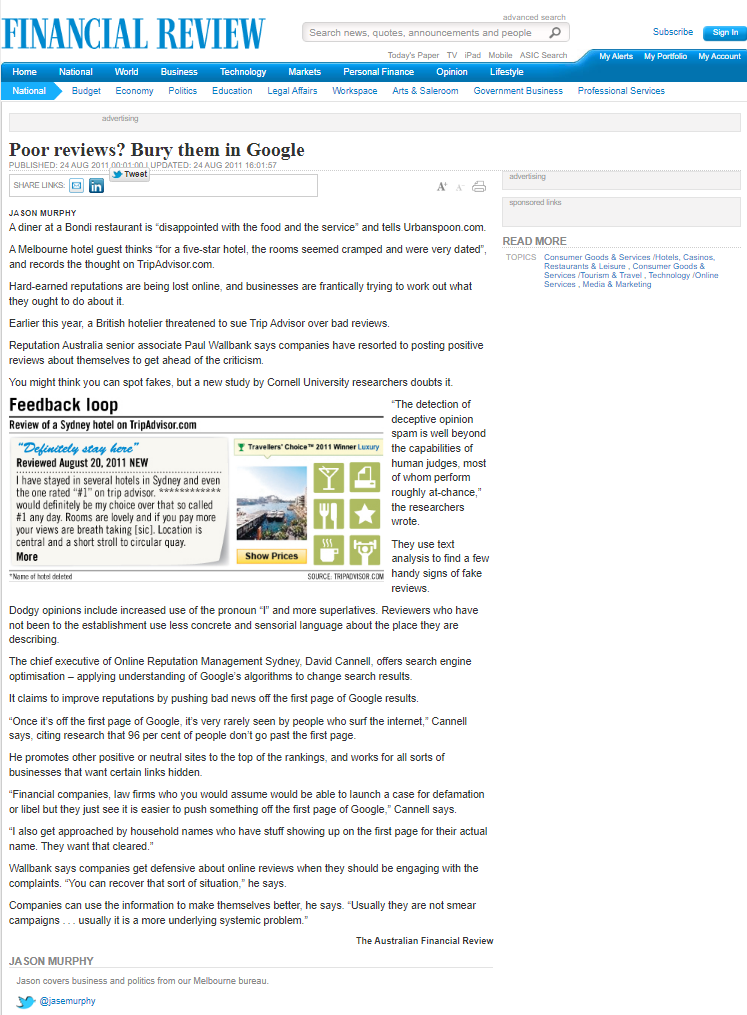
Watch the interview with David Cannell on Sky News Below
Text From the Financial Review Article:
Poor reviews? Bury them in Google
PUBLISHED: 24 AUG 2011 00:01:00 | UPDATED: 24 AUG 2011 16:01:57
JASON MURPHY
A diner at a Bondi restaurant is “disappointed with the food and the service” and tells Urbanspoon.com.
A Melbourne hotel guest thinks “for a five-star hotel, the rooms seemed cramped and were very dated”, and records the thought on TripAdvisor.com.
Hard-earned reputations are being lost online, and businesses are frantically trying to work out what they ought to do about it.
Earlier this year, a British hotelier threatened to sue Trip Advisor over bad reviews.
Reputation Australia senior associate Paul Wallbank says companies have resorted to posting positive reviews about themselves to get ahead of the criticism.
You might think you can spot fakes, but a new study by Cornell University researchers doubts it.
“The detection of deceptive opinion spam is well beyond the capabilities of human judges, most of whom perform roughly at-chance,” the researchers wrote.
They use text analysis to find a few handy signs of fake reviews.
Dodgy opinions include increased use of the pronoun “I” and more superlatives. Reviewers who have not been to the establishment use less concrete and sensorial language about the place they are describing.
The chief executive of Online Reputation Management Sydney, David Cannell, offers search engine optimisation – applying understanding of Google’s algorithms to change search results.
It claims to improve reputations by pushing bad news off the first page of Google results.
“Once it’s off the first page of Google, it’s very rarely seen by people who surf the internet,” Cannell says, citing research that 96 per cent of people don’t go past the first page.
He promotes other positive or neutral sites to the top of the rankings, and works for all sorts of businesses that want certain links hidden.
“Financial companies, law firms who you would assume would be able to launch a case for defamation or libel but they just see it is easier to push something off the first page of Google,” Cannell says.
“I also get approached by household names who have stuff showing up on the first page for their actual name. They want that cleared.”
Wallbank says companies get defensive about online reviews when they should be engaging with the complaints. “You can recover that sort of situation,” he says.
Companies can use the information to make themselves better, he says. “Usually they are not smear campaigns . . . usually it is a more underlying systemic problem.”
The Australian Financial Review